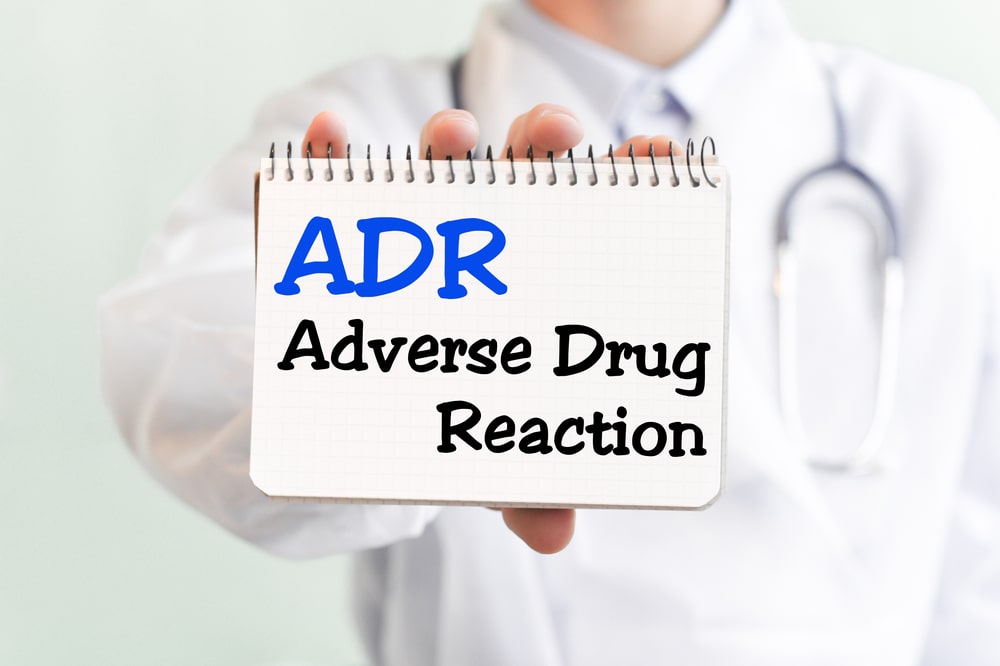Prevention of Adverse Drug Reactions and Drug Interactions: Following preventive measures can be considered avoiding or minimizing the occurrence of adverse reactions or drug interactions in the patients:
- Avoid incorrect use of drugs in the circumstance of clinical condition.
- Use the drug at the right dose, by the correct route, and at the correct frequency.
- The particular attention is essential regarding drug dose and response in neonates and geriatric patients and also about renal, hepatic, and cardiac disease patients.
- The drugs should be used only when there is a need and clear indication for use and there is no other alternative to use.
- The need for continuing treatment should be regularly reviewed and stop the drug which is not necessary.
- Before the use of any drug first collect the previous medication history, especially considering the untoward incidents with the use of a particular drug.
- Collect the information of allergic history.
- Drug alert carts are used for those drugs which have an incidence of adverse reactions thus such carts can reduce the number of ADRs.
- Rule out drug interactions.
- Be aware of interactions with certain foods, alcohol, and even household chemicals.
- The role of the pharmacist is to prevent ADRs by daily visits to the nursing units to discuss possible and reported ADR also by patient interviews and study all medications prescribed to treat adverse drug reactions.
- Adopt the right technique e.g. slow I.V. injection of aminophylline.
- Appropriate monitoring is required. For example: Prothrombin Time (PT) with warfarin.
Management of Risk Factors
Following are some appropriate actions that need to take to minimize risks of drug interactions to patients:
- Provide rationalized information on drug safety to healthcare professionals and other stakeholders.
- Provide the upgraded information in the form of an insert package for the medicinal product.
- Design proper educational programs for providing drug information to consumers and other users.
- For educational value to initiate further studies such as study for new indications of drugs, find out the drug for long term use for prevention of relapse; find the possible mechanism in adverse drug reaction observed.
To find out risk factors that influence the progression and incidence of adverse reactions as well as drug interactions in the population, examples;
- Patient factors: racial differences, genetics, diets, disease, and environmental condition, prescribing practices, how the drug use and daily personal life of people, etc.
- Drug interactions, distribution of drug, storage conditions and indications to use dosage schedule, and other underlying conditions.
Management of Adverse Reactions of Drugs
There requires early identification and rapid treatment of anaphylaxis for successful management of adverse drug reactions. There is a need to ensure the care of possible etiologic and pathogenic mechanisms. Acute therapy is focused on the augmentation of oxygenation and maintenance of blood pressure under control. In case of adverse reactions to the drug, there is necessary to take measures such as the use of epinephrine, oxygen, and adequate fluid replacement. In some cases, the use of vasopressors or corticosteroid drug therapy may be justified. In emergency cases, there is a need to maintain the airway patency.
Although the first and foremost step in the management of adverse reactions to drugs is a withdrawal of the suspected drug(s) or use of alternative therapy. If the adverse reaction is likely to be associated with dose then the dose of the suspected drug should be reduced and the treatment for the suspected reaction must be considered.
While managing an adverse reaction, a clear therapeutic objective should be kept in mind. Do not provide unnecessary longer duration of the treatment to the patient. Monitor the patient regularly and simplify the management. The following is the commonly used plan follow while dealing with the adverse reactions:
Discontinue the offending agent if:
- It can be safely withdrawn.
- The event is life-threatening or intolerable.
- There is a reasonable alternative.
- Continuing the medication will further worsen the patient’s condition.
Continue the medication (modified as needed) if:
- It is medically necessary.
- There is no reasonable alternative.
- The problem is mild and will resolve with time.
- Discontinue non-essential medications.
- Administer appropriate treatment – e.g., atropine, protamine sulfate, digibind antibodies, and flumazenil.
- Provide supportive or palliative care – e.g., hydration, glucocorticoids, warm/cold compresses, analgesics, or antipruritic.
- Consider rechallenge or desensitization.

Make sure you also check our other amazing Article on : Reporting of Adverse Drug Reaction
